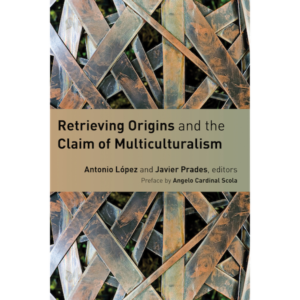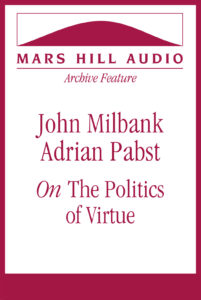
A more robust account of political life
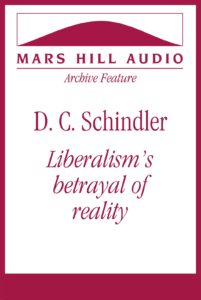
The collapse of public life
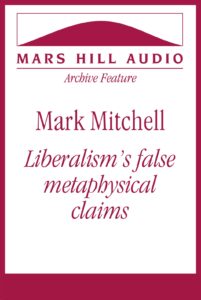
An impoverished anthropology
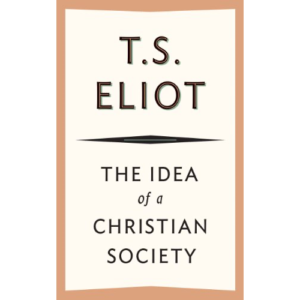
Liberalism’s self-destructive dynamic
T. S. Eliot on the social need to move toward something and not just away
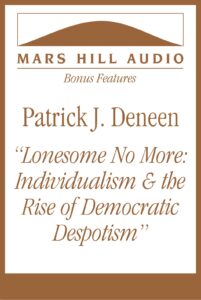
The fraught marriage of liberty and equality
In this essay, Patrick Deneen examines Alexis de Tocqueville’s complex and insightful portrait of “democratic man” living in the context of perpetual societal tension between the excesses of liberty and equality. (39 minutes)
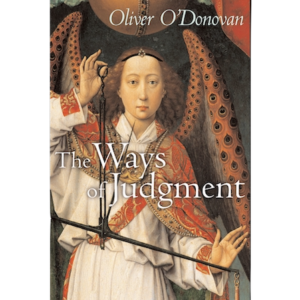
The fatal polytheism of late liberalism
Oliver O’Donovan on the failure that leads to social collapse, marked by conflict, suspicion, and violence
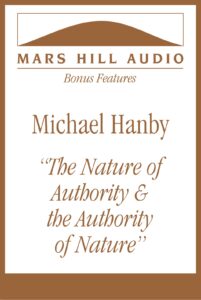
The recovery of true authority for societal flourishing
Michael Hanby addresses a confusion at the heart of our current cultural crisis: a conflation of the concepts of authority and power. (52 minutes)
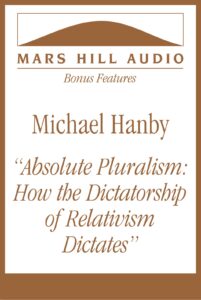
Why liberalism tends toward absolutism
In this lecture, Michael Hanby examines what causes liberalism to become dictatorial in thought and practice. (49 minutes)
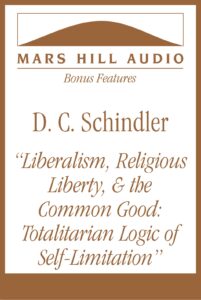
Is liberalism compatible with religious freedom?
D. C. Schindler relies on two Thomistic axioms to illustrate why liberalism — which claims to offer a minimalist conception of the common good — is ultimately incompatible with a Catholic understanding of religious freedom. (34 minutes)
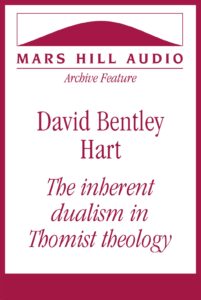
Rejecting “two-tiered” Thomism
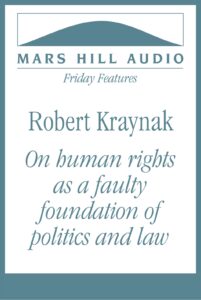
Challenging the “gospel of democracy”
Robert Kraynak argues that assumptions many modern Christians hold about liberal democracy are rooted in some false ideas about the nature and purpose of civil government. (46 minutes)
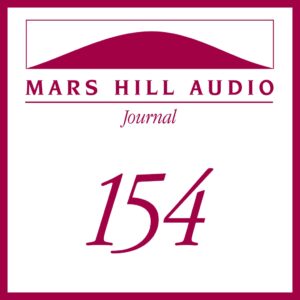
Mars Hill Audio Journal, Volume 154
FEATURED GUESTS:
Felicia Wu Song, Michael Ward, Norman Wirzba, Carl Trueman, D. C. Schindler, and Kerry McCarthy
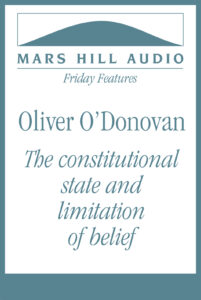
Religion within the bounds of citizenship
In a 2006 lecture, Oliver O’Donovan argues that the conventional way of describing Western civil society creates obstacles to the participation of believers (Muslim, Christian, and other). (68 minutes)
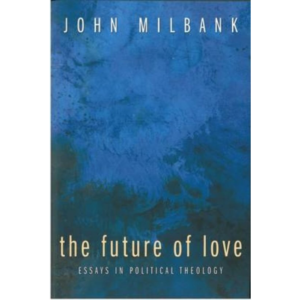
Totalitarianism in a new mode
John Milbank on how liberalism has a marked tendency to become illiberal
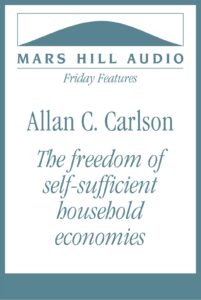
Post-liberalism of an earlier generation
Allan C. Carlson discusses an anthology of articles from Free America, a magazine published between 1937 and 1947 whose writers believed that political democracy could only survive if coupled with decentralized economic democracy. (26 minutes)
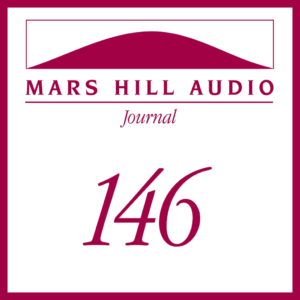
Mars Hill Audio Journal, Volume 146
FEATURED GUESTS:
Mark Mitchell, Hans Boersma, Henry T. Edmondson, III, Brian Clayton, Douglas Kries, Conor Sweeney, and Carole Vanderhoof
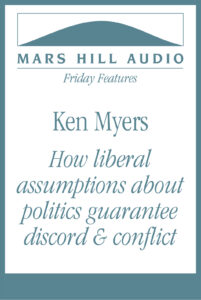
The inevitability of escalating public animosity
With excerpts from books and lectures by Alasdair MacIntyre, Oliver O'Donovan, and Wendell Berry, Ken Myers argues that modern political theory has guaranteed increasing levels of public conflict. (19 minutes)
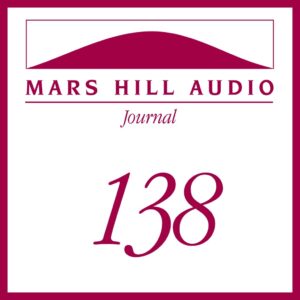
Mars Hill Audio Journal, Volume 138
FEATURED GUESTS:
John Milbank, Adrian Pabst, Glenn W. Olsen, Rupert Shortt, Oliver O'Donovan, David Bentley Hart
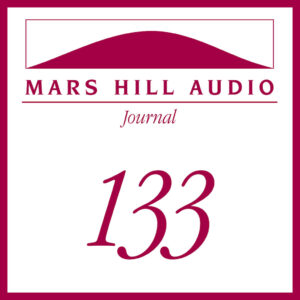
Mars Hill Audio Journal, Volume 133
FEATURED GUESTS:
Darío Fernández-Morera, Francis Oakley, Oliver O’Donovan, Thomas Storck, John Safranek, Brian Brock, and George Marsden
